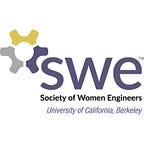SWE at the Capitol: Advocating during a Pandemic
By Sharicka Zutshi
Conventionally, we don’t associate science and engineering with policy-making and politics because they belong in different realms of expertise by their very definitions. However, like most components of modern society, these two realms intersect enough to significantly impact each other from time to time. The COVID-19 Pandemic has revealed the true intersections between science and policy by showing how vulnerable scientific fact is to political propaganda. Without the right policies in place, science cannot contribute to social welfare efficiently. Additionally, we cannot make the scientific community itself a more equitable space without the proper infrastructure in place.
The Advocacy Committee of the Society of Women engineers attempts to bridge the gap between science and policy by advocating for better approaches to support the scientific community and better infrastructure for equitable distribution of technology. At Berkeley, our Advocacy committee has taken on initiatives involving voter engagement, STEM policy awareness, and helping women become advocates for themselves in male-dominated academia and industries. Most of our endeavors intend to support women engineers on the Berkeley campus; however, events hosted by the national SWE Public Policy division help smaller, local chapters such as ours take our demands and concerns to the federal level.
The annual SWE Congressional Outreach event is an opportunity for members of the SWE community to reach out to lawmakers in DC and lobby for policies, bills, and plans that can support women in STEM and promote equity and intersectionality in the broader scientific community. It can also be a platform for engineers to converse with their representatives about making technology more accessible for their constituents. Usually, we travel to Washington DC with a delegation and stay there for the duration of the Outreach events. Still, this time, we conducted our meetings with Congresspeople via Zoom due to the unprecedented circumstances.
Being a first-time advocate can be really difficult, especially if you don’t have any in-person components. Nonetheless, the SWE community provided us with a great support system. The SWE Public Policy division conducted training and provided us with all the materials we need to effectively communicate our concerns to the congresspeople.
The event was structured such that representatives from a particular state got to meet with the office of a representative of their state in the House of Representatives and meet with the two senators’ office representing their state. As a representative of SWE California, I had the honor of interacting with the offices of Congresswoman Barbara Lee, Senator Diane Feinstein, and Senator Alex Padilla.
It was fascinating to be talking about actual bills that can benefit women in STEM with people who influence policy makers at the federal level. Some of the bills that we talked about were:
- STEM Opportunities Act (HR 204): The bill aims to improve data collection to implement evidence-based policies to promote equity and diversity in the scientific community. Additionally, it directs the Office of Science and Technology Policy at the White House to promote women’s progress and underrepresented persons in STEM fields.
- 21st Century STEM for Girls and Underrepresented Minorities Act (TBD): The bill would provide grants to local educational agencies that receive Title I funding to encourage girls to pursue STEM fields through tutoring, mentoring, after-school activities, summer programs, and field trips. Funding for materials is also included.
- The Equality Act (HR 5/S 393) clarifies that existing federal statutes prohibiting sex discrimination in employment (including access to benefits), healthcare, housing, education, credit, and jury service under Title VII also prohibit sexual orientation and gender identity discrimination. Passed the House in February. (Passed the House last Congress.)
- The Paycheck Fairness Act (HR 7/S 205) requires the Equal Employment Opportunity Commission to collect employer data to enforce laws prohibiting pay discrimination. Introduced in the House and Senate. Passed the House last Congress.
- The Pregnant Workers Fairness Act (HR 1065) prohibits employers from discriminating against employees impacted by pregnancy or childbirth, including failing to make reasonable accommodations, taking adverse actions or denying opportunities, or forcing an employee to take unpaid leave.
- The Combating Sexual Harassment in Science Act (TBD) supports federally-funded sexual harassment research and efforts to prevent and respond to sexual harassment in STEM fields. Not yet introduced, Passed the House last Congress.
Hearing congresspeople’s representatives speak enthusiastically about these bills and reaffirming their support for women in STEM was very energizing for all the advocates there. Senator Padilla’s office focused on the policies that affected engineering due to his personal background in engineering, Senator Feinstein’s office focused on the proposed bills that targeted gender equity in the workforce due to her actions. Congresswoman Lee’s office focused on intersectionality in technical fields. Further, Congresswoman Lee is drafting a bill to help minorities in computer science access better education and more employment opportunities. Although this support was exciting, the personal stories of the women who were lobbying for these policies are what made this event genuinely life-changing. It was truly inspiring to hear the stories of amazing women on the zoom call with me, advocating for policies that would significantly impact their lives and share personal stories and anecdotes.
All in all, it was an incredible experience to engage with and advocate for different STEM-based policies. I am looking forward to traveling to Washington DC with our SWEsters for Congressional Outreach next year to enthusiastically advocate for better policies with new stories, new ideas, and new solutions.
